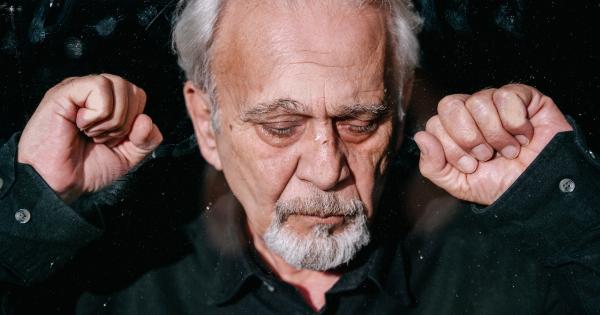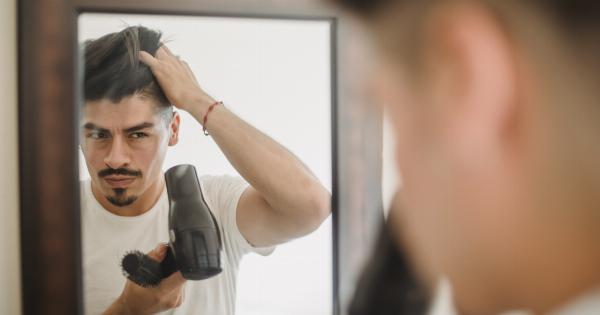There are several pharmaceutical solutions available in the market to address hair loss. Hair loss can be a daunting problem, leading to stress and anxiety for individuals who suffer from it.
However, choosing the right pharmaceutical solution can help to not only reduce hair loss but also promote healthy hair growth. In this article, we will be discovering the best pharmaceutical solutions for hair loss.
1. Minoxidil
Minoxidil is an over-the-counter medication that has been approved by the FDA to treat hair loss. Minoxidil is available in different strengths, and it is applied topically to the scalp twice a day.
Minoxidil is a vasodilator that opens up the blood vessels, thereby increasing blood flow to the hair follicles. This increased blood flow, in turn, stimulates hair growth. Minoxidil has been shown to be effective in addressing hair loss in both men and women.
2. Finasteride
Finasteride is an FDA-approved medication that has been shown to be effective in treating hair loss in men. Finasteride works by inhibiting the production of dihydrotestosterone (DHT), a hormone known to contribute to male pattern baldness.
Finasteride can reduce hair loss and promote hair growth in men. However, it is important to note that Finasteride may cause sexual side effects in some men.
3. Ketoconazole
Ketoconazole is an antifungal medication that is sometimes used to treat hair loss. Ketoconazole works by reducing the amount of a fungus called Malassezia that may contribute to hair loss.
Ketoconazole is available in the form of a shampoo or topical solution. However, it is important to note that ketoconazole may cause dryness or irritation of the scalp in some individuals.
4. Dutasteride
Dutasteride is an FDA-approved medication that has been shown to be effective in treating hair loss in men. Dutasteride works by inhibiting the production of DHT, the hormone that contributes to male pattern baldness.
Dutasteride is a more potent inhibitor of DHT than Finasteride. However, like Finasteride, Dutasteride may also cause sexual side effects in some men.
5. Corticosteroids
Corticosteroids are medications that are sometimes used to address hair loss. Corticosteroids work by reducing inflammation that may be contributing to hair loss.
Corticosteroids are available in different strengths and can be applied topically or injected into the scalp. However, it is important to note that corticosteroids may also have side effects such as skin thinning or discoloration.
6. Laser Therapy
Laser therapy involves the use of low-level laser light to stimulate hair growth. Laser therapy can be administered at a clinic or by using a handheld device at home.
Laser therapy works by improving blood flow to the scalp, which in turn stimulates hair growth. Laser therapy has been shown to be effective in reducing hair loss and promoting hair growth in both men and women. However, laser therapy can be expensive and may take several months to show results.
7. Platelet-Rich Plasma (PRP) Therapy
Platelet-rich plasma (PRP) therapy involves the use of a patient’s blood to promote hair growth.
PRP therapy is administered by taking a small amount of blood from the patient, separating out the platelets, and injecting the platelets back into the scalp. Platelets contain growth factors that can stimulate hair growth. PRP therapy has been shown to be effective in reducing hair loss and promoting hair growth in both men and women.
8. Hair Transplant Surgery
Hair transplant surgery involves the transplantation of hair from one part of the scalp to another. The procedure involves removing hair follicles from a donor area and transplanting them to the balding area.
Hair transplant surgery is a permanent solution to hair loss. However, it can be expensive and may require multiple sessions to achieve the desired results.
9. Biotin Supplements
Biotin supplements are sometimes used to address hair loss. Biotin is a B-vitamin that is important for healthy hair growth. Biotin supplements are available over-the-counter and can be taken orally.
However, it is important to note that the benefit of biotin supplements in treating hair loss has not been conclusively proven.
10. Zinc Supplements
Zinc is an essential mineral that is important for healthy hair growth. Zinc supplements are sometimes used to address hair loss. Zinc supplements can be taken orally and are available over-the-counter.
However, it is important to note that excessive zinc intake can be harmful.
In conclusion, there are several pharmaceutical solutions available to address hair loss. These solutions range from over-the-counter medications to surgical procedures.
It is important to consult with a healthcare provider before starting any hair loss treatment to determine the best course of action based on individual needs and concerns.


























